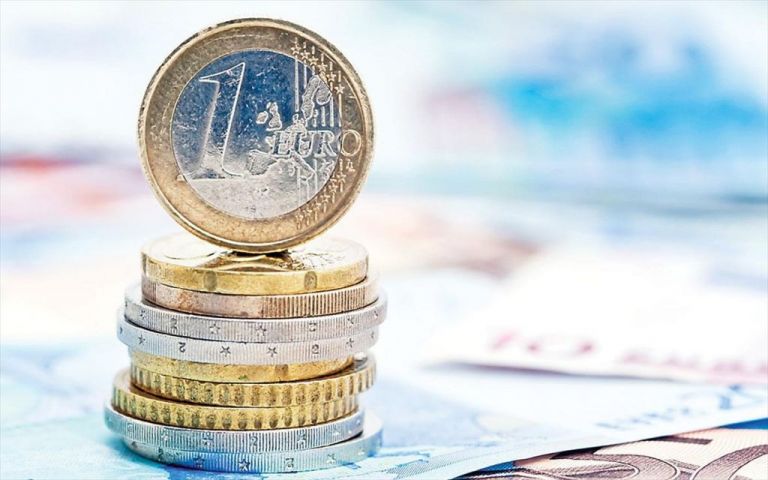
Despite the strong inflationary pressures, the growth dynamics in the first nine months of 2022 based on the high impulse to consume and the sharp rise in tourist traffic and travel receipts, combined with the creation of new jobs, led to the recovery of the economic climate in Greece in September, according to data from the European Commission. Although the relative index remains at lower levels compared to the period before the energy crisis, its difference from the corresponding average of the European Union (EU-27) is increasing, reaching 12.5 points in September, according to Alpha Bank’s weekly economic development bulletin. Specifically, the Economic Sentiment Indicator (ESI) in Greece reached 105.1 points in September, from 101.7 points in August. Among the individual components of the index, consumer confidence and business expectations in all sectors except manufacturing improved on a monthly basis, with the highest rise recorded in services. It is noted that the climate in the industry sector is significantly affected by the ongoing energy crisis at a global level. In contrast, the ESI index in the EU-27 fell by 3.5 points month-on-month in September to 92.6 points, as both business expectations in all sectors of the economy and consumer confidence deteriorated.
The Bulletin lists and analyzes the latest available data concerning developments:
(i) of the Economic Climate Index – which is a precursor to economic activity – and shows that while the European economy will likely slow down, or may even enter recession in the coming months, economic activity in Greece is estimated to remain in positive territory,
(ii) the Economic Uncertainty Indicator (EUI*) and the factors that lead to the conclusion that at the present time the conditions for formulating forecasts involve a high degree of uncertainty, due to geopolitical developments and the energy crisis. The latter is recorded more strongly in the economic units that are most affected by the increased cost of energy, i.e. industry and consumers.
(iii) consumer expectations for the future development of prices, which, although de-escalated in recent months, remain strongly positive and the Harmonized Index of Consumer Prices (HICP), in Greece and the EU-27, which is increasing at an accelerated rate.
Budget forecasts
The above is consistent with the recent forecasts of the Ministry of Finance in the draft Budget for 2023, according to which next year economic growth will be 2.1% compared to 0.9% in the Eurozone (ECB, Staff projections, September 2022 ). However, as pointed out in the text of the Draft, the forecast for 2023 is relatively uncertain, due to geopolitical developments, the war in Ukraine and the conditions of supplying Europe with natural gas, etc.
The ESI index
The ESI index in Greece is moving at levels above the long-term trend average from February 2021 to date. It should be noted, however, that until the end of 2021 the index recorded an upward trajectory, i.e. it was in an expansion phase, as economic units discounted the gradual rebound of economic activity and the recovery of confidence. From the beginning of 2022 until September, a downward trend followed, as geopolitical developments and high inflation led to the deterioration of the economic climate.
Specifically, from the outbreak of the war onwards (February-September 2022), the ESI index in Greece declined more gently compared to the corresponding European average (-9 points compared to -20.7 points in the EU-27). In both cases, the drop in economic sentiment is due, primarily -based on the weighting factors-, to the decline in business expectations in the industry and specifically the forecasts for the development of production in the coming months and, secondarily, to the losses recorded in consumer confidence, due to of the deteriorating forecasts for the economic situation of households and the country. These losses in Greece were partially offset by a rise in services business expectations in the August-September period, with estimates of the current state of business and current demand strongly bullish. The latter resulted in the Economic Sentiment Index returning to an upward trajectory in September. In the same period, consumer confidence, although still strongly negative, improved by 4.1 points.
The role of tourism
Therefore, the comparatively better performance of the economic climate index in Greece is attributed to the high performance of tourism in the current year, which on the one hand mitigates the losses of disposable income from the increase in energy costs, at least for a percentage of the workforce, on the other hand create the necessary fiscal space for the Greek government in order to support households and businesses. The improvement in consumer confidence was probably contributed by government support measures aimed at strengthening disposable income and therefore private consumption, which compared to GDP is one of the highest in Europe. In the EU-27, respectively, the economic climate deteriorated sharply during the summer months, with the result that the ESI index has been in a contraction phase since July, i.e. below the long-term average and on a downward trend. This fact reflects, among other things, the concerns of European businesses and households regarding the current energy crisis and its evolution.
Household uncertainty
At the same time, the uncertainty of households and businesses regarding forecasts, both in Greece and in the EU-27, as reflected in the relevant polling index of the European Commission, remains at high levels. This indicator has risen significantly in the majority of European countries over the past twelve months, during which inflation accelerated and the war in Ukraine broke out. The rise of the index in Greece exceeded the corresponding change in the EU-27 average. In both cases, however, increased uncertainty was recorded primarily in the industrial and consumer sectors – in line with the economic climate – attributed to increased production costs and reduced purchasing power.
One of the most important factors of uncertainty in the current situation is inflation, which is still moving strongly upwards, both in Greece and in the EU-27. It is typically reported that, according to Eurostat’s initial measurement, the Harmonized Index of Consumer Prices (HICP) in Greece increased by 12.1% on an annual basis in September, against an increase of 11.2% in August, while at EU-27 level the HICP increased by 10.1% in August. Consumer expectations for price developments over the next 12 months, however, have leveled off since March, when they peaked in both regions. In the EU-27 the relative balance of responses decreased sharply, as it stood at 41.2 points in September, from 62.6 in March.
In Greece, inflation expectations fell more gently, as they stood at 47.7 points in September, from 52.5 points in March. The de-escalation of consumers’ inflationary expectations is possibly linked to: i) the measures taken at national and community level, both to subsidize energy bills and to ensure the required amount of energy for the coming winter and ii) to the consecutive interest rate hikes by the European Central Bank. It is noted, however, that consumer expectations for the price fluctuations remain at very high levels.
* From October 2021, the European Commission included the Economic Uncertainty Indicator in its monthly survey on the economic climate, which is the weighted average of the responses of businesses from four different sectors (industry, services , retail and construction), as well as consumers, on how difficult it is to make predictions about their business or financial situation, respectively, at the present time.
Latest News

Deadline for Postal Vote Registration Expires on Mon.
More than 157,000 Greek citizens had registered on the relevant online platform so far

Orthodox Palm Sunday Today; Shops Open in Greater Athens-Piraeus Area
Orthodox Holy Week begins on Monday, April 29, and ends on Sunday, Easter Sunday or Great and Holy Pascha (May 5)

Greek Retailers Remain Optimistic About Easter Shoppers’ Turnout
While stores are expected to be open on Sunday, April 28, the majority of Easter shoppers will likely do their shopping during the Holy Week, following the deposit of Easter bonuses

Europeche: Greek Apricot Production Recovers
Europeche forecasts the production will bounce back despite a slight decrease in varieties attributed to high winter temperatures

Bank of Greece (BoG): Business-Household Deposits Up 1,675bln in March 2024
In March 2024, the monthly net flow of credit to the general government was negative by 469 million euros

FT: Greece’s Economic Rebound a Balance of Growth and Poverty
Eurostat data revealed a significant 10.8% drop in Greek public debt relative to GDP in 2023, alongside a 2% economic expansion, outpacing Germany's performance.
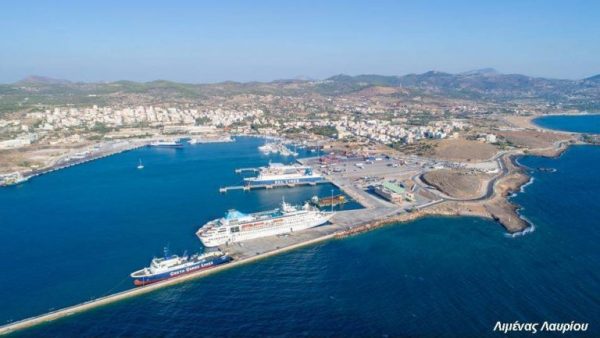
Lavrio Port Authority Next Up for Privatization
A deadline for the submission of expressions of interest is May 14, 2024
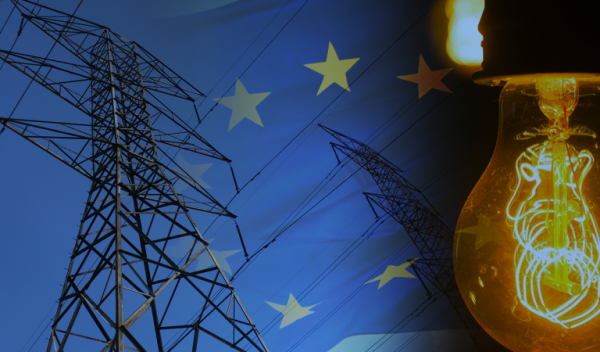
Eurostat: Greece Records Largest Drop in Natural Gas Prices in 2nd Half of 2023
The price of electricity and natural gas in Europe was down following a substantial surge that began before the Russian invasion of Ukraine and peaked in 2022

GEK TERNA Still Considers Leveraging Concessions Portfolio as Financial Tool
President and CEO of Gek Terna George Peristeris explained the company's plans on Tuesday on the sidelines of the inauguration of sections of Greece's E65 highway

NielsenIQ: 3% Supermarket Revenue Increase in Q1
Private label products are gaining traction, comprising 25.4% of shopping basket shares, up from 24.7%



























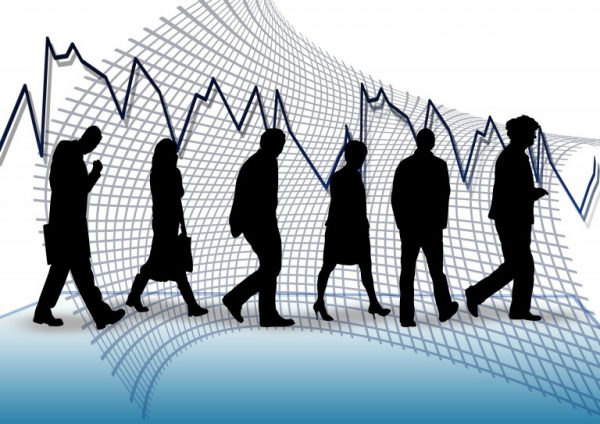






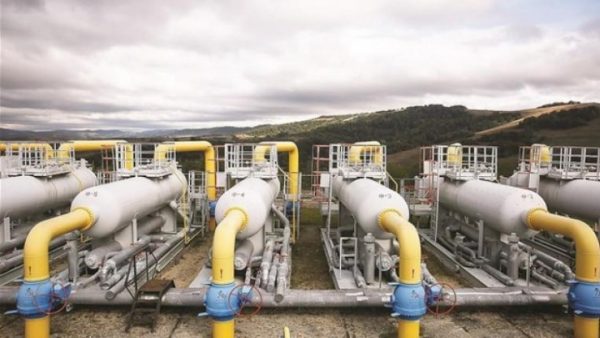





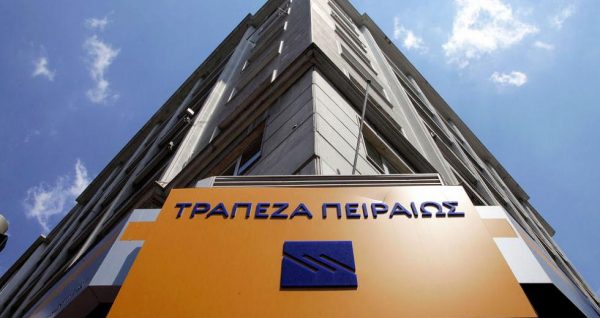
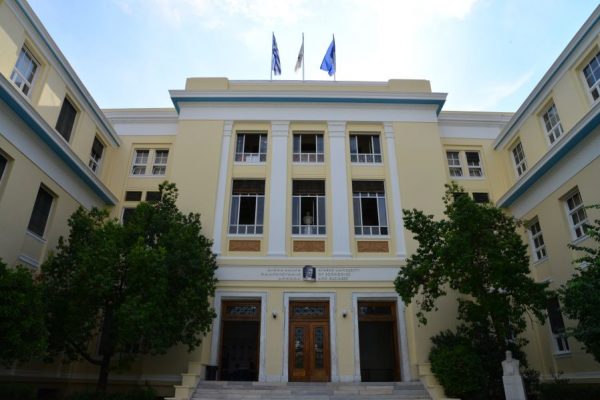
 Αριθμός Πιστοποίησης Μ.Η.Τ.232433
Αριθμός Πιστοποίησης Μ.Η.Τ.232433